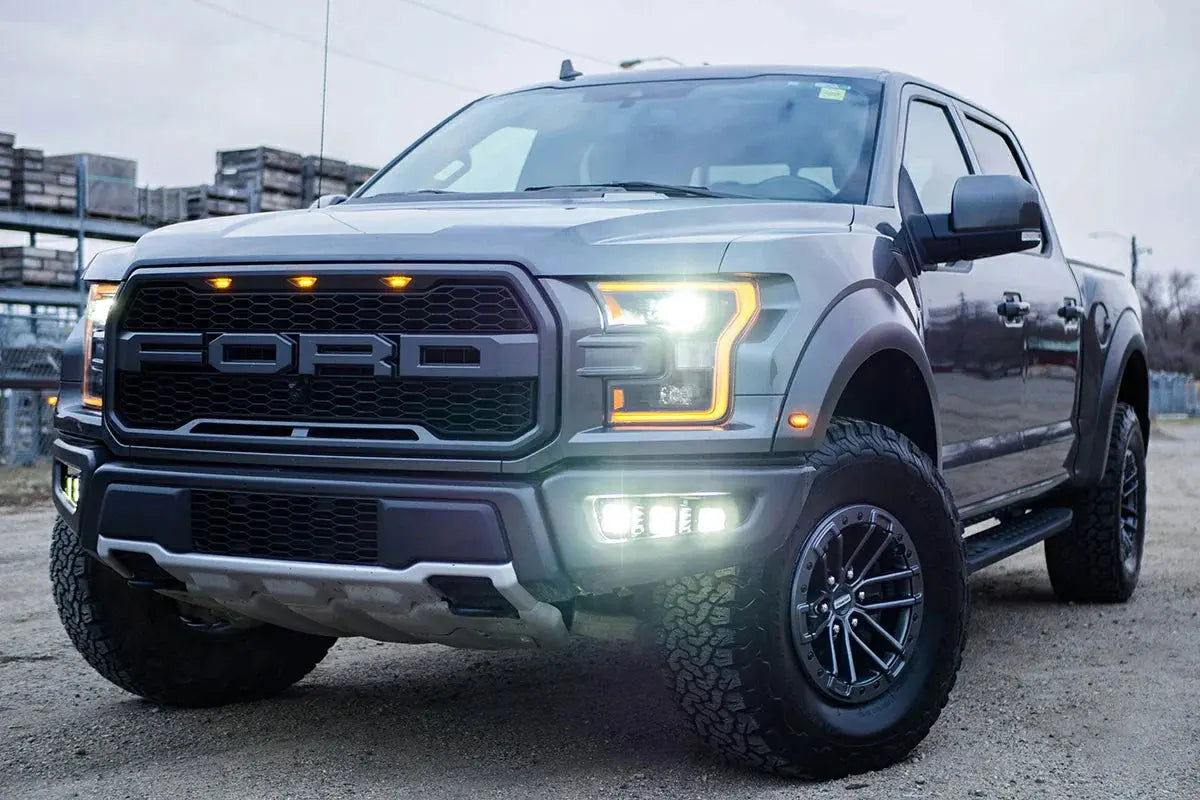Introduction: The Journey of Deletion
Ever wondered, “What does deleting a truck really mean?” or asked yourself, “What does deleted mean on a diesel truck?” You’re not alone. These questions float around the diesel community like whispers — curious, eager, and full of potential. But the truth? Well, it’s a bit more complicated than you might think.
Diesel deletion is one of those topics that stirs up strong opinions. There’s the allure of raw power, the promise of smoother performance, and, of course, the chance to say goodbye to those pesky emissions control systems. But it’s not all about horsepower and freedom from restrictive systems. There are deeper truths — and a few lies — buried in this popular modification.
So let me take you on a ride through the myths, the realities, and the unexpected consequences of deleting your diesel truck. By the end, you might just be ready to roll up your sleeves and dive into the world of diesel deletion — or maybe not. Either way, you'll know exactly what you're getting into.
What Does It Mean to Delete Your Diesel Truck?
Think of it like this: when you delete a diesel truck, you’re removing the heart of its environmental restrictions. The Diesel Particulate Filter (DPF), the Exhaust Gas Recirculation (EGR) system, and even the Diesel Exhaust Fluid (DEF) system all have a single goal — to cut down the emissions that roll out from your truck’s exhaust.
When these systems are removed, the exhaust no longer has to fight through those filters, and the engine is able to breathe more freely. In essence, it’s like taking off the shackles that hold the truck back, giving it more power, more freedom, more of what it was built for. The engine hums louder, the truck roars on command, and everything feels just a little bit stronger.
But there’s a catch. With that newfound freedom, the truck will now release more pollutants into the air. The “deleted” diesel truck is no longer restricted by environmental standards. It’s raw, it’s unfiltered, and it’s as powerful as you’ve always imagined — but it’s also far more harmful to the environment.

Truth #1: Diesel Deletion Improves Engine Performance
There’s a reason so many diesel enthusiasts are drawn to this mod: performance. Removing the DPF and EGR systems allows the engine to breathe freely. You feel it the moment you step on the gas pedal — the throttle is more responsive, the acceleration is quicker, and there’s just an undeniable surge of power that you can’t ignore.
When the exhaust gases can flow more freely, the engine becomes more efficient. The truck feels more alive. And let’s be honest — who doesn’t want a truck that sounds meaner, stronger, and feels like it’s ready to take on anything?
Lie #1: Diesel Deletion Always Improves Fuel Efficiency
But here’s where things get tricky. The fuel mileage improvement isn’t guaranteed. It’s one of those things people hear about and instantly believe. Sure, if you’ve been driving around with a clogged DPF, you might notice a jump in fuel economy after deletion. But for modern trucks, the difference can be negligible, or in some cases, even worse.
If your truck is running fine with its emissions systems in place, removing them won’t necessarily give you the fuel efficiency boost you’re hoping for. It’s a bit like the “magic pill” that everyone expects — but the reality is far more nuanced.
Truth #2: Diesel Deletion Can Eliminate Common Reliability Issues
This is where deletion starts to make a lot of sense. The reliability issues surrounding DPF and EGR systems are real. You’ve probably experienced it yourself — the endless regenerations, the loss of power, the constant trips to the mechanic. These systems are notorious for clogging up, failing, and causing more headaches than they’re worth.
When you delete them, you're effectively removing the root cause of these issues. The truck runs smoother, the maintenance becomes less frequent, and you can stop worrying about when the next regeneration will take place. In this case, deletion might actually be the solution, not the problem.

Lie #2: Diesel Deletion is Always Legal and Safe
This is where things get serious. Yes, deleting your diesel truck is legal in certain circumstances, but let’s be clear: it can be illegal in others, particularly when it comes to emissions regulations. In the U.S., removing the DPF and EGR systems can violate the Clean Air Act, and if your truck is used on public roads, you’re risking fines and penalties.
You might think, “Well, I’m just using it off-road.” But what happens when that truck needs to pass an emissions test or is caught on camera spewing black smoke? The consequences can be severe, both financially and legally. Deleting a diesel truck is not something you can take lightly if you plan to take it onto public roads.
Truth #3: Diesel Deletion Increases the Truck’s Lifespan
While deleting can make your truck more powerful and improve certain aspects of reliability, it also means your truck will be free of the complexities that come with modern emissions technology. With fewer systems to manage, there's less wear and tear on components like the DPF delete and EGR delete.
In essence, deleting might lead to fewer mechanical failures and a longer-lasting engine. Fewer components to break down means fewer trips to the mechanic. The truck’s lifespan could increase, especially for older models where emissions systems were still being fine-tuned.

Conclusion: Should You Delete Your Diesel Truck?
Now that you know the truths and lies surrounding diesel deletion, you have the power to make an informed decision. Sure, the allure of raw power and improved performance is tempting. But you must weigh the consequences — the environmental impact, the potential legal issues, and the long-term costs.
The choice is yours. But before you start unbolting parts and ordering delete kits, remember: deletion isn’t a simple decision. It’s not just about horsepower — it’s about understanding what you’re giving up, what you’re gaining, and what you’re willing to risk. It’s a decision that will affect your truck and the world around you.
Are you ready to unlock the true power of your diesel? Or will you leave the emissions systems intact and enjoy a more balanced ride?
The road ahead is yours — choose wisely.
FAQs
Q1: What does it mean to delete a diesel truck?
A1: Deleting a diesel truck means removing or disabling the factory-installed emissions control systems, such as the Diesel Particulate Filter (DPF), Exhaust Gas Recirculation (EGR) system, and Diesel Exhaust Fluid (DEF) system.
Q2: Why would I want to delete my diesel truck?
A2: Many truck owners delete their diesel trucks to increase engine performance, improve fuel efficiency, reduce maintenance costs, and get a more aggressive engine sound. However, it also increases harmful emissions.
Q3: Will deleting my truck improve its performance?
A3: Yes, deleting your diesel truck can lead to improved performance. With fewer restrictions in the exhaust system, the engine can breathe better, resulting in increased horsepower, better throttle response, and improved towing capacity.
Q4: Does deleting a diesel truck always improve fuel economy?
A4: Not always. While deleting a clogged DPF can improve fuel efficiency, newer diesel trucks with updated emissions systems may not see significant improvements. It depends on your vehicle’s condition and how you drive.
Q5: Is deleting a diesel truck legal?
A5: It depends on where you live. In many countries and states, deleting emissions systems is illegal because it leads to higher pollution. Always check your local laws before making this modification.
Q6: What are the risks of deleting my diesel truck?
A6: The main risks include potential legal penalties, increased emissions, and possible engine damage if the deletion is not done correctly. It could also impact your truck's warranty or insurance coverage.
Q7: Can deleting my truck make it louder?
A7: Yes, deleting your truck typically results in a louder exhaust note. Without the DPF and EGR systems, the engine’s sound becomes more pronounced, giving you that classic diesel growl.
Q8: How much does it cost to delete a diesel truck?
A8: The cost of deleting a diesel truck varies depending on the type of truck and the parts involved. On average, it can cost between $1,000 and $3,000 for a full delete kit, including labor.
Q9: Will deleting my diesel truck affect its reliability?
A9: Deleting your truck may improve short-term reliability by removing the need for frequent regeneration cycles of the DPF and EGR system. However, in the long term, it can lead to increased emissions and potential engine issues if not done properly.
Q10: Are there any alternatives to deleting my diesel truck?
A10: Yes, alternatives include upgrading or cleaning the DPF, installing a high-flow EGR cooler, or using performance tuners to optimize fuel and exhaust systems without fully removing emissions components.





